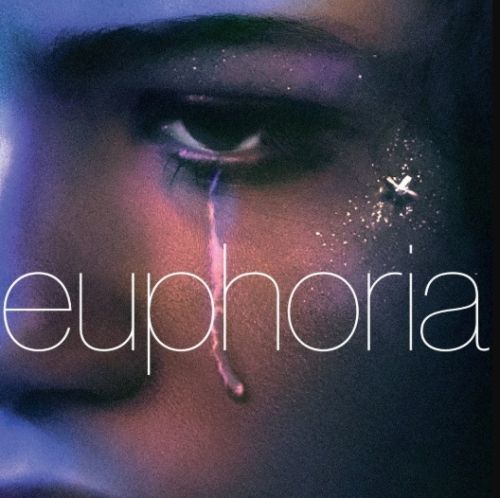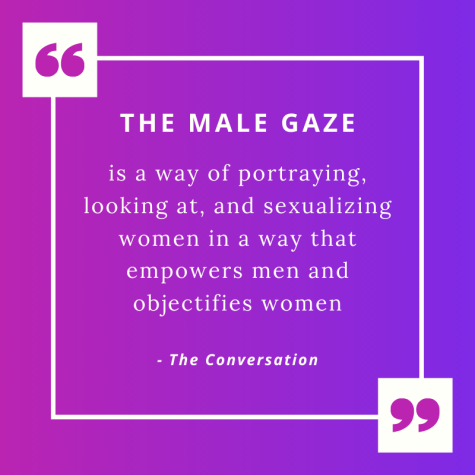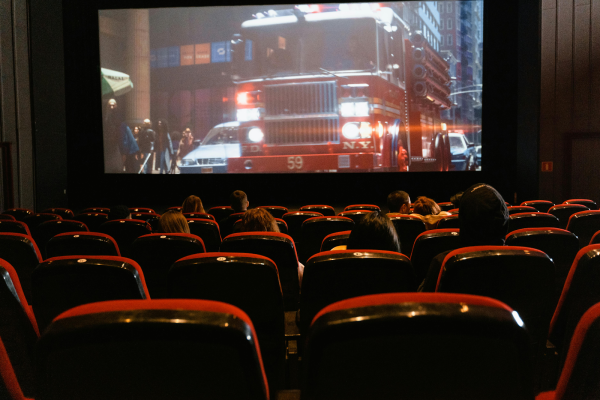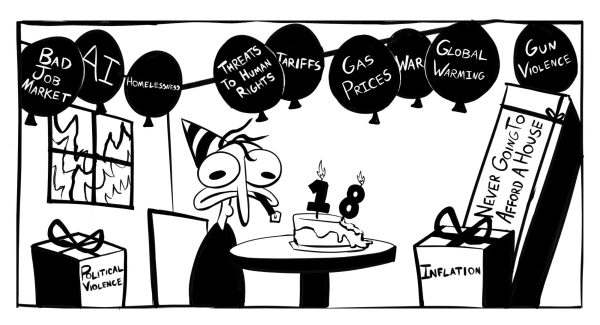Euphoria and an Essay on The Male Gaze

Image courtesy of Pinterest and shopyourtv.com.
Critically acclaimed and staunch favorite among teens, HBO’s Euphoria is the latest television series to enthrall the world. The show follows a group of high schoolers who navigate love, friendships, and drama amidst a world of drugs and trauma. The show’s main theme is addiction and portrays several characters’ addiction to substances at length, but the extensive scenes which portray nudity have collectively raised eyebrows among viewers. Specifically, the nude scenes involving actress Sydney Sweeney (who portrays the character Cassie) have sparked intense discussion and criticism about the male gaze in film.

You might ask, what is the male gaze? Simply put, the male gaze is a way of portraying, looking at, and sexualizing women in a way that empowers men and objectifies women (theconversation.com). Examples of the male gaze include when the camera pans in a long leer across a woman’s body, when camera angles linger on what men typically find attractive in regards to the female body, and anything that allows a male audience to fantasize about in regards to sex and women. Within the lens of the male gaze, women are viewed as brainless objects, creatures that are doomed to endlessly entertain and submit to the whims and fantasies of men.
So how does Euphoria tie with the male gaze? In the show’s beginnings, the male gaze was criticized — actress Hunter Schafer would defy the male gaze through storylines and by incorporating her own experiences as a transgender woman to further flesh out her character. Schafer’s character, Jules Vaughn, would acknowledge how it intertwines with her everyday life as a transgender woman and would “monologue about gender, identity, and sexuality” (thelightleaks.com). In a behind the scenes segment for Euphoria, Schafer candidly discussed how she used to derive her self-worth from male validation due to her internalized hypersexuality and hyperfemininity. Through her character of Jules, she worked to reclaim her identity in consideration of her evolving perception of femininity to actively deconstruct the male gaze. Yet in the show’s later seasons, Euphoria has fallen into the trap like so many other TV series of glorifying the sexualization of women through the lens of the male gaze. Take into account the character of Cassie Howard, a beautiful and attractive young woman who seeks male validation due to her issues with her absent father (buenaspeaks.org). While season one showed how Cassie’s self-destructive behavior originates as a result of her depression and need for love, in season two her character became one that was written to entertain; Cassie’s body became something that was weaponized against her by becoming the focus of the camera. She becomes increasingly promiscuous to attract male love and validation. Even Schafer’s character, who was seeking to break through the binary lens of the male gaze, had her storyline completely revolve around a man in season two.
Cassie is supposed to be around the age of a seventeen year old girl, so her hypersexualization in the show is even more disturbing. Not only is she underage, the camera’s focus is almost always on her body and she is dressed to appeal to men. While Sydney Sweeney discusses how she believes her nude scenes are “important to the character and the storyline,” (Teen Vogue) in many nude scenes, you can barely see her face and it feels exploitative, grotesque, and degrading. Keep in mind that Sweeney also revealed in an interview with the Independent that there were more nude scenes that were filmed than the ones that made it on screen.
It has become abundantly clear that Euphoria is a show that is written by a man. The direction of the show under Sam Levinson raises the ever present question in relation to the male gaze: How can a show through the lens of and be written and directed by a man, reject the male gaze? Simple answer – it can’t. We live in a society that is blind to the hypersexualization of women and through shows like Euphoria, actively encourages it. Nudity in general serves no real purpose to plot or character development and Euphoria’s abundance of nude scenes feel gimmicky. As viewers, we need to raise the important question of how much do we really need to see in order to enjoy a show? Graphic sex scenes, topless characters, and barely covered actors and actresses posing as teenagers feels more perverse than entertaining. It is clear that Euphoria walks a fine line between stylistically and realistically portraying the lives of teenagers and brutalizing and hypersexualizing the image of them. However, the stylistic aspect of the show has trumped the substance of the plot, dooming the show to fall in the trap of the male gaze.









Malaika • Mar 26, 2022 at 2:49 pm
Wow, Safia, such an amazing article!! I completely agree with you. The amount of nudity this show portrayed was so unnecessary. I find it strange that these characters are presented as high school kids. I believe the show would be far more interesting if the focus was on the plot rather than naked bodies. The male gaze in euphoria is very real, and you explained it really well. Keep up the good work!